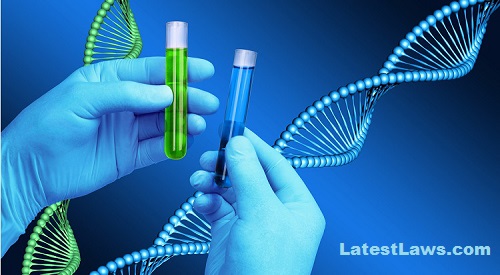The Supreme Court has said that DNA tests should not be ordered routinely but only in deserving cases.
Forcing an unwilling party to undergo a DNA test infringes the personal liberty and right to privacy of the individual, the Apex Court added.
In situations in which other evidence is available to prove or disprove a relationship, courts should refrain from ordering blood tests, the Supreme Court stated on Friday.
Barring twins, DNA is unique for each individual and can be used to trace family linkages, expose sensitive health information and gather data on a person’s identity, the bench said.
"Whether a person can be compelled to provide a sample for DNA in such matters can also be answered considering the test of proportionality laid down in the unanimous decision of this Court in K S Puttaswamy v Union of India, wherein the right to privacy has been declared a constitutionally protected right in India," the bench comprising of Justice R Subhash Reddy and Justice Hrishikesh Roy stated.
Therefore, courts need to examine the proportionality of the legitimate aims being pursued when ordering a DNA test, the Supreme Court said. This includes whether it is arbitrary or discriminatory, whether it may have an adverse impact on the person and whether the encroachment upon the privacy and personal autonomy of the person being subjected to the DNA test is justified.
Brief Facts of Case
This verdict came on an appeal filed by Ashok Kumar. He is seeking a declaration of ownership of the property left behind by late Trilok Chand Gupta and late Sona Devi.
He has claimed to be the son of Trilok Chand Gupta and Sona Devi. However, the defendants in the case — the couple’s three daughters — denied that Ashok Kumar was the son of their parents in a written statement. Hence, he is disentitled from a share in the property, they said.
During the trial, the defendants sought a DNA test of Ashok Kumar in order to prove or disprove a biological link between the defendants and the plaintiff.
However, Ashok Kumar opposed the plea for a DNA test and stated that he had produced adequate documentary evidence to support his claim. The trial court said that he could not be compelled to undergo the test.
(Only the headline and picture of this report may have been reworked by the LatestLaws staff; the rest of the content is auto-generated from a syndicated feed.)
Source Link
Read Judgement Here:
Picture Source :


























